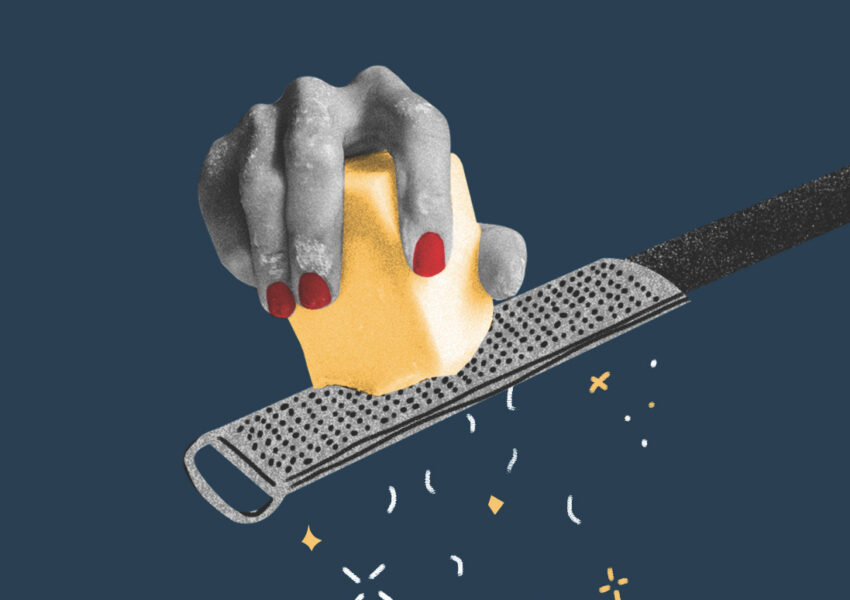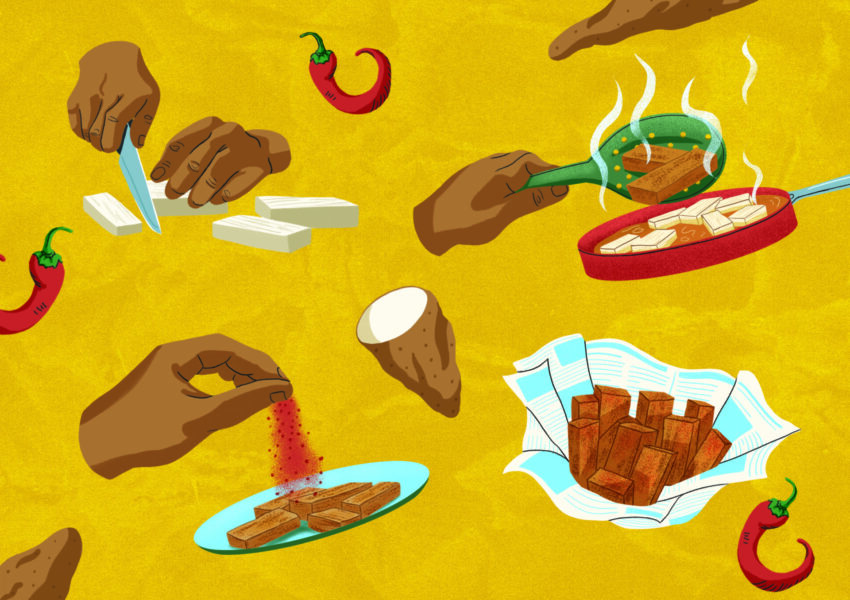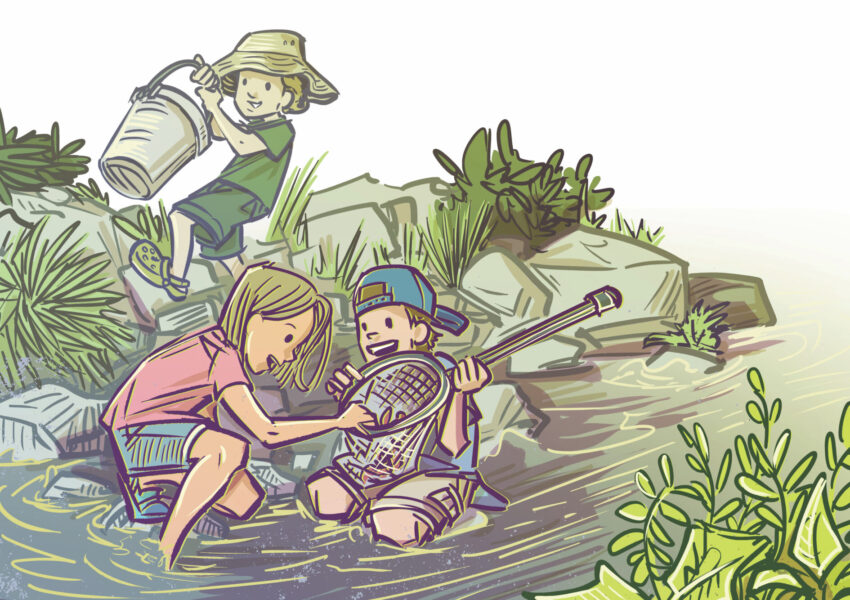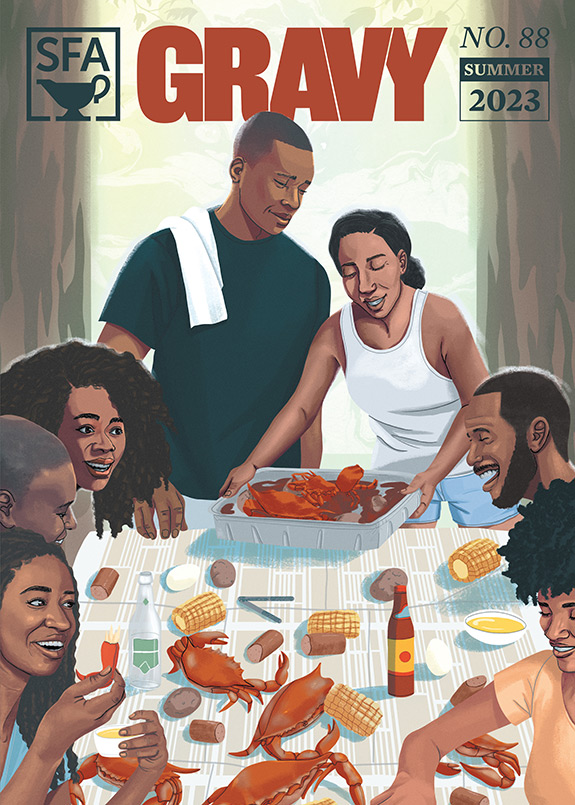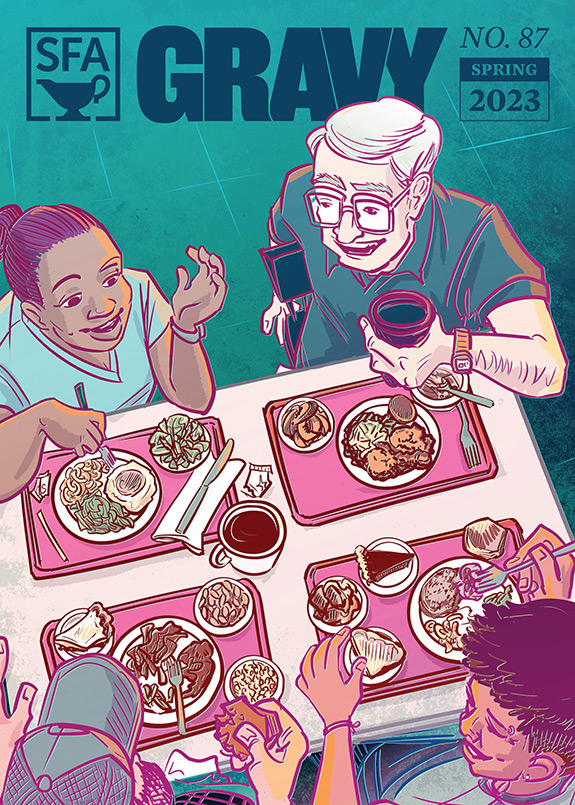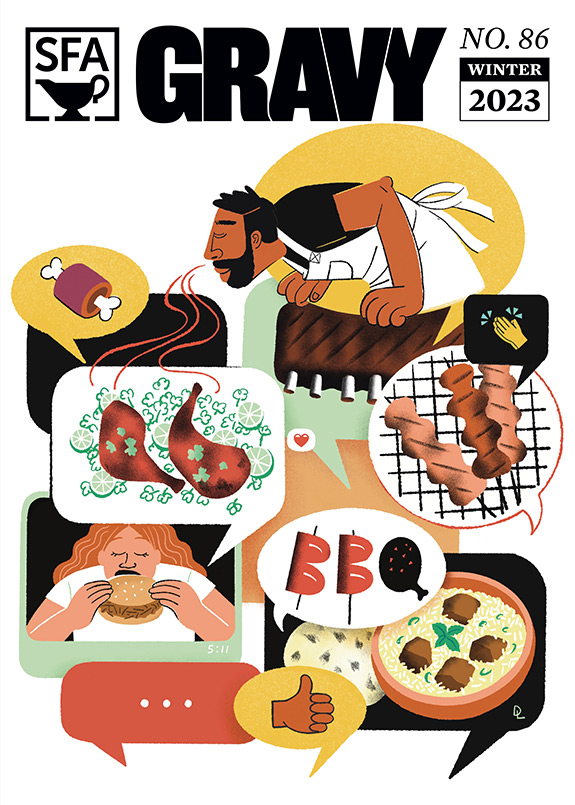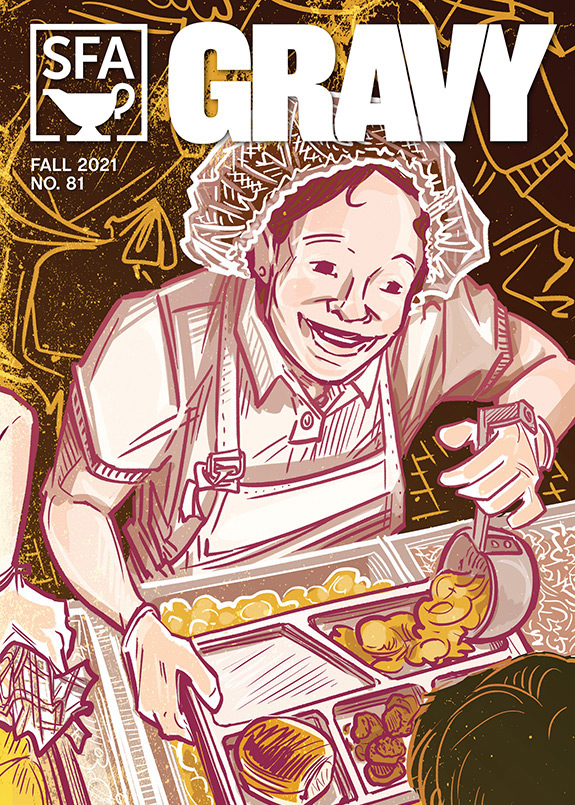This piece comes from Gravy #47, which celebrates all things sweet.
Channeling Aunt Ruth
How I became a Southern baker
by Karen Barker
I grew up in the Flatbush neighborhood of Brooklyn, where there was a very strong corner-bakery culture but little actual home baking. People tended to purchase their breads and desserts rather than produce them out of cramped urban kitchens. I was lucky that my maternal grandmother, an exception to this rule, lived upstairs. She was a Russian immigrant who barely spoke English, had no written recipes, and never used standardized measures. Bubby Fanny turned out an amazing array of Eastern European specialties and taught me that homemade sweets were a tribute to one’s family and always included the ingredients of time and love.
When Ben, my North Carolina–born husband, brought me south after culinary school, I was a stranger in a strange land. Eventually, I transitioned from bagels to biscuits, from cheesecake to chess pie, and discovered that what I always thought was cornbread was actually corn cake. I married into a family of legendary bakers. To me, the young professional baker, the Barker family prowess set the bar stratospherically high, and the expectations associated with my training only amplified my intimidation.
My husband’s people were originally tobacco-growing subsistence farmers from the Union Ridge community of northern Alamance County, in the North Carolina Piedmont. The women of the household produced three meals every day, passing on cooking skills and knowledge to their daughters. Ben’s grandmother Louise and her sister Ruth became known throughout the area for their fine hand with breads and sweets. Working a cast-iron, wood-fired oven with no thermostat or controls, in a kitchen without electricity or plumbing, they honed an extensive repertoire.
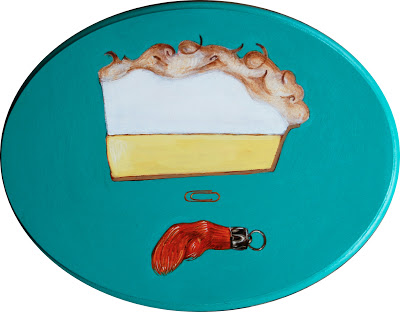 |
| Painting by Amy C. Evans |
My father-in-law recalls that “they baked every day; they made biscuits every day; and that can lead to darn good biscuits—every day.” Ruth was a talented farm cook who gloriously made do with ingredients that were on hand. My husband swears that his chubby conformation as a child was due in large part to his summers on the farm, with unlimited molasses-and-butter-slathered biscuits and a never-ending parade of pies.
When Louise moved off the farm into town, her style became a it more modernized and refined. Cake baking was a highly competitive sport among homemakers, with each woman having a particular specialty. Louise was considered an all-around champion, but her pound cakes garnered the greatest admiration. She was detailed and exacting and made sure that her daughter-in-law—Ben’s mom, Jeanette—was able to recreate family recipes to her standards.
Feeling the pressure, I quickly tried to perfect my crust skills when I moved to North Carolina. I learned that a smile and a well-crafted pastry go a long way in conquering any social situation. After bringing a couple of blueberry-blackberry pies to my first Barker family reunion, I was deemed “all right.” When persnickety Gran Louise told me I had “the gift” for baking, I felt as though it was I who had received the greatest gift—to pass muster with her was no small feat. (Little did she know that my only domestic talent was in the culinary arena.)
Jeanette, Louise, and Ruth were my role models for rich pound cakes, delicate cheese straws, and billowy lemon meringues. I’m a tinkerer, but I never messed with my baking angels’ recipes: They were simple, exceptional, and lovingly passed down. Their time-tested methods, explanations, and memories associated with each recipe were as valuable as the recipes themselves. I learned that fresh, hand-grated coconut was the secret to Gran’s famous holiday coconut cake; and how Aunt Ruth’s impeccably fried pies depended on apples that were home grown, picked, and dried, encased by a flaky lard dough. It was impressed upon me that the family’s definitive cornbread recipe relies not only on full-throttle buttermilk, farm eggs, and fresh stoneground meal, but on a well-seasoned skillet and a generous amount of bacon grease.
The next generation is in training. My niece Lee has spent the last two Christmas Day mornings at Jeanette’s elbow, learning how to replicate her biscuits. My son Gabriel has shown a strong interest in scratch baking, and my granddaughter Kayla has recently asked me to show her how to make bread pudding. I have come to believe that you are, in fact, what you eat, in that a family’s history resides in those passed-down recipes.
My Bubby had little in common with Ben’s kinfolk other than the nurturing secret of home baking and how important it is to create a set of food memories for your family. It is not lost on me that the phrase “give me a little sugar” means “show me some love” in the Southern lexicon. Remarkably, I can hear my grandmother saying the same thing in Yiddish: gib mir a bissel tsuker. Perhaps, at their hearts, Flatbush and Union Ridge aren’t so different after all.
Karen Barker was happily co-proprietor and pastry chef of the Magnolia Grill in Durham, NC (1986–2012). Now, happily, not.


